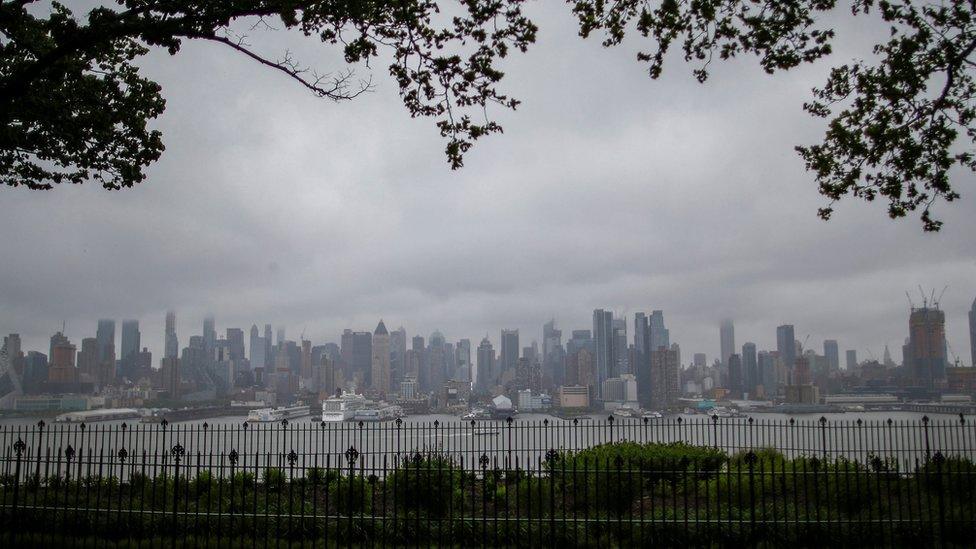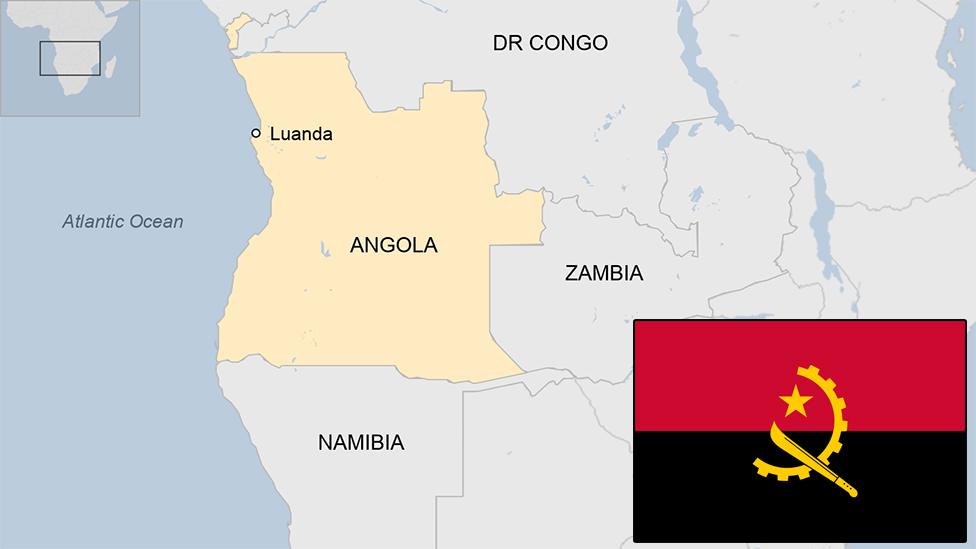Angolan capital 'most expensive city for expats'
- Published

A political protest in June by supporters of the opposition UNITA movement in Luanda
Luanda, the capital of Angola, has regained top spot as the world's most expensive city for expats, pushing Hong Kong back into second place.
The claim is made in the 23rd annual cost-of-living survey carried out by the advisory firm Mercer.
Tokyo, Zurich and Singapore comprise the rest of the top five.
London has fallen to just 30th place in the rankings, partly because of the pound's devaluation, with other big UK cities also dropping down the rankings.
"UK cities have fallen again this year as the British pound weakened before, and after, the EU referendum last summer," said Kate Fitzpatrick of Mercer.
"However, London did not drop as far as may be expected, with steep prices keeping London as one of the most expensive cities for expatriates worldwide.
"The capital's rental costs remain at the higher end globally and have remained stable, or increased slightly over the last year as construction cannot keep up with demand," she added.
After London, the other most expensive UK cities were Aberdeen (146th), Birmingham (147th), Glasgow (161st) and Belfast (170th).

New York is used as the benchmark city in the Mercer survey
The annual survey looks at more than just the cost to expats of renting an apartment or house.
It examines the cost of 200 items in each place, including housing, transport, clothes, food and entertainment.
Thus it compares the cost of buying a cinema ticket, a pair of jeans, a litre of water, a cup of coffee, a litre of petrol, a litre of milk, and bread and beer.
The position of Luanda, which has topped these rankings frequently in the past few years, is influenced by the cost of secure accommodation for expat staff as well as for everyday goods.
For instance, the cost of renting an unfurnished three-bedroom house of "international standards in an appropriate neighbourhood" is put at a whopping $13,000 US dollars (£10,300) a month.
In general, Asian and European cities are the most expensive.
Places six to 10 in the annual rankings are taken by Seoul, Geneva, Shanghai, New York and Bern.
Mercer uses New York as its benchmark for comparing the costs of living in other cities, and measures currency movements against the US dollar.
"Overall, US cities either remained stable in the ranking or have slightly increased due to the movement of the US dollar against the majority of currencies worldwide," said Mercer.
- Published21 February 2023

- Published19 June 2017

- Published22 June 2016
